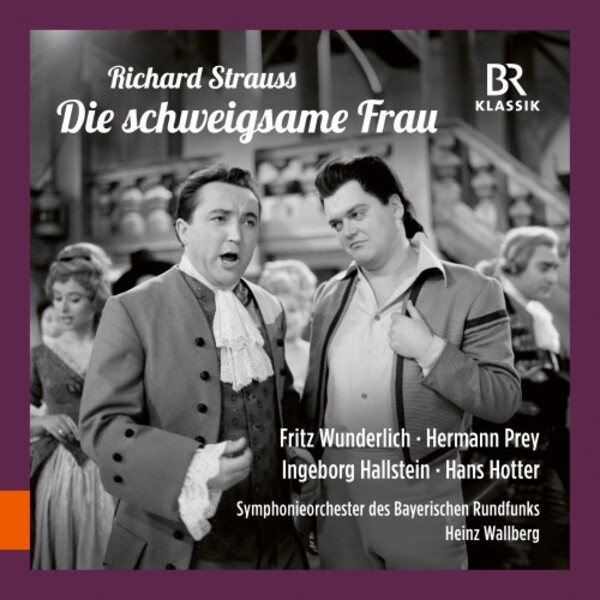
R Strauss - Die schweigsame Frau (Scenes)
£13.25
In stock - available for despatch within 1 working day
Despatch Information
This despatch estimate is based on information from both our own stock and the UK supplier's stock.
If ordering multiple items, we will aim to send everything together so the longest despatch estimate will apply to the complete order.
If you would rather receive certain items more quickly, please place them on a separate order.
If any unexpected delays occur, we will keep you informed of progress via email and not allow other items on the order to be held up.
If you would prefer to receive everything together regardless of any delay, please let us know via email.
Pre-orders will be despatched as close as possible to the release date.
Label: BR Klassik
Cat No: 900219
Format: CD
Number of Discs: 1
Genre: Opera
Release Date: 5th April 2024
Contents
Works
Die schweigsame Frau, op.80Artists
Fritz WunderlichHermann Prey
Ingeborg Hallstein
Hans Hotter
Symphonieorchester des Bayerischen Rundfunks
Conductor
Heinz WallbergWorks
Die schweigsame Frau, op.80Artists
Fritz WunderlichHermann Prey
Ingeborg Hallstein
Hans Hotter
Symphonieorchester des Bayerischen Rundfunks
Conductor
Heinz WallbergAbout
After the death of Hugo von Hofmannsthal, Strauss thought he had reached the end of his operatic career – but then he found a librettist of equal calibre in Stefan Zweig, who provided him with “the best libretto for an opéra comique since Figaro” (Strauss). The comic opera was written between 1932 and 1935 and, despite the fact that Zweig was a Jewish librettist (who had since emigrated), Strauss managed to have the opera premiered in Dresden on 24 June 1935, conducted by Karl Böhm. However, because the composer insisted on printing Zweig’s name on the posters and in the programme, the Nazis boycotted the performance. And after the Gestapo intercepted a letter that Strauss had written to Zweig expressing his delight at the successful premiere, the composer finally fell out of favour. The opera was taken off the programme after only three performances, and was not performed at any other German theatre until 1946. Strauss resigned from the presidency of the Reich Chamber of Music “for health reasons”.
Error on this page? Let us know here
Need more information on this product? Click here